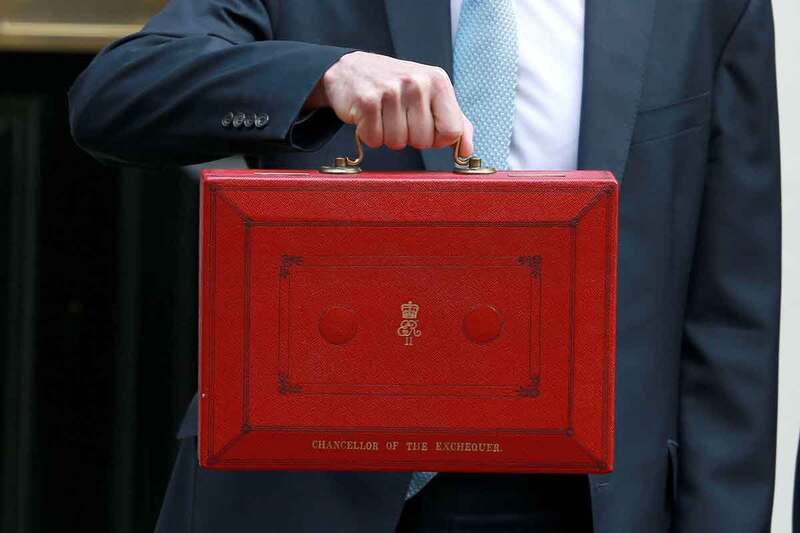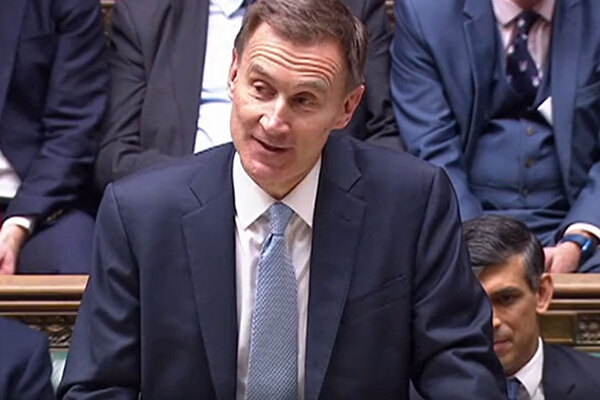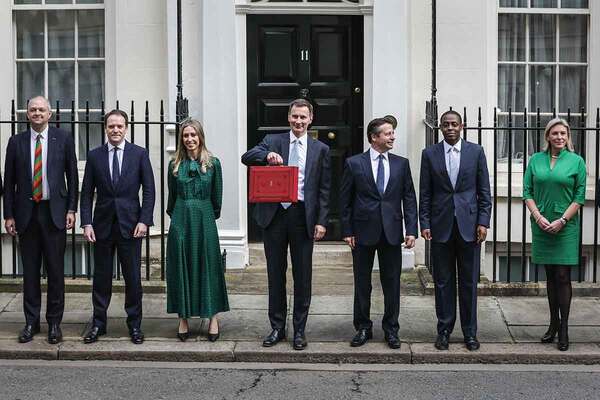You are viewing 1 of your 1 free articles
Spring Budget 2024: key takeaways for the sector
Inside Housing provides a rundown of the key policy takeaways from yesterday’s Spring Budget
All eyes were on the chancellor yesterday as his Spring Budget will be the last before a general election.
With an election cycle looming, it was being billed as much a political statement as a financial one. And with a change of government possible in less than a year, the certainty the sector craves was always going to be a tough ask.
Nevertheless, Inside Housing rounded up a raft of key demands to the Treasury from the sector ahead of Jeremy Hunt’s Budget.
Almost none of this made the Budget. Instead, there was funding for new homes in Barking and Canary Wharf, the news that a number of property tax policies will be tweaked or abolished, and an extension of some support for households struggling with the cost of living crisis.
There was also funding for community-led housing developments. So, if you missed the Spring Budget yesterday, here is the full rundown of the key takeaways for the sector.
Household Support Fund
The government’s Household Support Fund (HSF), which allows councils to help families via food banks, warm spaces and food vouchers, will be extended for six months.
The chancellor said: “[The HSF] was set up on a temporary basis and due to conclude at the end of this month.
“Having listened carefully to representations from the Joseph Rowntree Foundation, the Trussell Trust and honourable members… I’ve decided that with the battle against inflation still not over, now is not the time to stop the targeted help it offers.”
The fund was launched in October 2021 amid the cost of living crisis to help households get through the winter. Over the past two-and-a-half years, £2.5bn has been given out through the HSF.
It is used to support households with the cost of essentials, although local authorities have flexibility in addressing local needs.
Charities had argued for the fund to be extended. Last month, more than 120 organisations wrote to Mr Hunt to urge him to extend it for at least another year. A cross-party group of 160 councils in England said the HSF is a “vital lifeline”.
Funding for thousands of homes in Barking and Canary Wharf
A total of £242m in funding for projects in east London was revealed, with the aim of unlocking nearly 8,000 homes.
Mr Hunt said he would “allocate £242m of investments in Barking Riverside and Canary Wharf, which together will build nearly 8,000 houses as well as transforming Canary Wharf into a new hub for life science companies”.
Further details in the Budget document explained that £124m funding would unlock up to 7,200 homes in Barking and a new life sciences hub. Meanwhile, £118m funding would accelerate the delivery of up to 750 homes in Canary Wharf alongside a life sciences hub, commercial space and a healthcare facility.
Both areas are already home to significant housebuilding and regeneration projects. Barking Riverside contains a 440-acre brownfield site next to the River Thames, where more than 10,000 homes are planned.
In addition, the government will establish a Euston Delivery Group with £4m to support plans to deliver up to 10,000 new homes, and will publish its “vision for transforming Leeds” to unlock 20,000 new homes.
At the same time, it was confirmed that the future development corporation in Cambridge will receive a long-term funding settlement at the next Spending Review, to start delivering on the government’s plan to unleash the economic potential of the city, including building new homes and increasing the amount of lab space.
SDLT exemption on acquisitions and Right to Buy cap increase
Mr Hunt announced plans to update legislation to ensure registered providers are not liable for stamp duty land tax (SDLT) when purchasing property with public subsidy.
The Budget document read: “Legislation will be updated to ensure that from 6 March 2024, registered providers of social housing in England and Northern Ireland are not liable for SDLT when purchasing property with a public subsidy, and public bodies will be exempted from the 15% anti-avoidance rate of SDLT.”
An exemption from this policy as it applies to for-profit providers was something the chief executive of Legal & General Affordable Homes said was necessary to support partnership working and investment.
The Department for Levelling Up, Housing and Communities has since confirmed to Inside Housing that this applies to both non-profit and for-profit registered providers.
Also buried in the Budget document was news that the government will increase the cap from 40% to 50% on the percentage of the cost of a replacement home that can be funded from Right to Buy (RTB) receipts.
It follows a change last year where the government revealed it would impose a two-year freeze on a cap that prohibits councils from delivering more than 50% of replacement RTB homes through acquisitions. The cap was previously expected to be tightened to 30% or 40%.
Taking aim at the holiday and short-term lettings market, a number of property taxes were also abolished in the hope it will encourage landlords and second home owners to sell their properties, making more available for a variety of buyers including those looking to get on the housing ladder for the first time.
Funding for community-led schemes
The chancellor also revealed £20m in funding for community-led housing schemes, which he believes will “support local communities to deliver the developments they want and need”.
Further details on the initiative have not yet been released, but a report from last year estimated that around 280,000 homes could be delivered through community-led projects if there was more support from the government, housing associations, councils and developers.
The Community Land Trust Network said that a new “pattern book” of partnership could be scaled up nationally to tackle the wider housing crisis.
Community land trusts (CLTs) are non-for-profit organisations that own and develop land for the benefit of local people. A total of 350 CLTs have been formed across England and Wales, which so far have delivered 1,711 affordable homes.
This was followed by a call in September last year for social landlords and community housing groups to be given improved powers to buy empty or poor-quality homes.
The proposal by the New Economics Foundation included giving landlords more powers to buy empty or poor-quality homes and turn them into social housing.
You can read the sector’s response to the Spring Budget here.
Sign up for our daily newsletter
Already have an account? Click here to manage your newsletters












